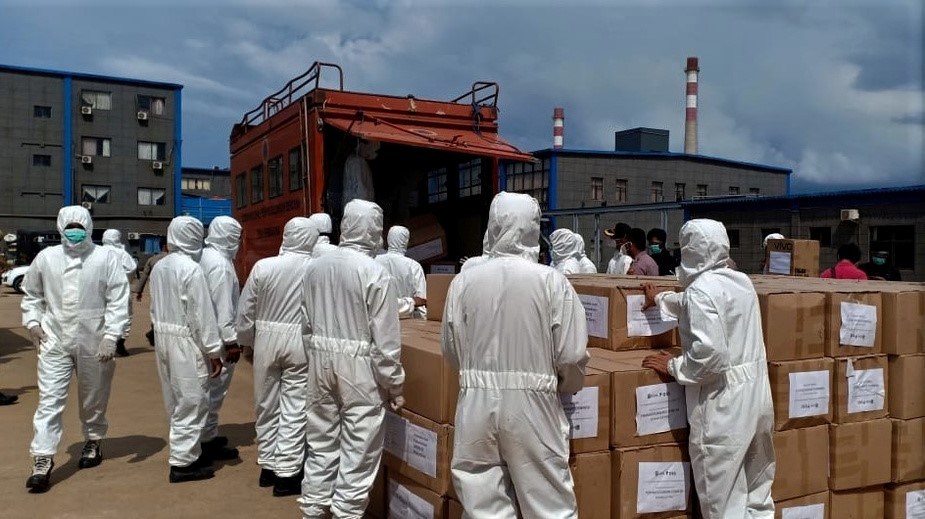Belgium this month joins the nations that maintain critical stocks of medical supplies on behalf of the whole European Union.
Currently, medical reserves are held by Denmark, Germany, Greece, Hungary, Romania, Slovenia, Sweden and the Netherlands. Belgium’s addition to the list is “a new step in the fight against the pandemic,” the federal health ministry said in a statement.
“With this, Belgium once again shows that it is an integral and reliable partner in the context of European aid by being a hub for the storage and distribution of essential medical equipment in Europe.”
In practice, the EU keeps strategic reserves of medical equipment stocked in various places across the continent, to be called on whenever circumstances require, whether that means a local situation such as an earthquake, or a Europe-wide crisis like the current pandemic.
The strategic reserves can be called upon when national stocks of medical supplies come under pressure. That has already been the case, for example, in Croatia, the Czech Republic, France, Italy, Lithuania, Spain, Montenegro, North Macedonia and Serbia.
Belgium’s contribution to the EU’s reserve will consist of 10 million surgical masks, one million protective aprons, 10 million pairs of gloves, and 100,000 pairs of protective glasses and face shields.
Belgium’s own national reserve stock consists of 124 million surgical masks, 14.5 million protective aprons, 54 million pairs of gloves, and 620,000 pairs of protective glasses and face shields.
The spread of the European reserve across different countries, the ministry said, “not only guarantees solidarity between the European countries, but also ensures the renewal of the Belgian stock through rotation, so that the use-by date of the material is never exceeded.”
The stock will be held for five years, and is fully financed by the EU. It is a joint project between the health ministry and the home affairs ministry, which has authority over the civil protection forces who will be the first to be called on if and when the EU reserves are called into action.
Alan Hope
The Brussels Times

